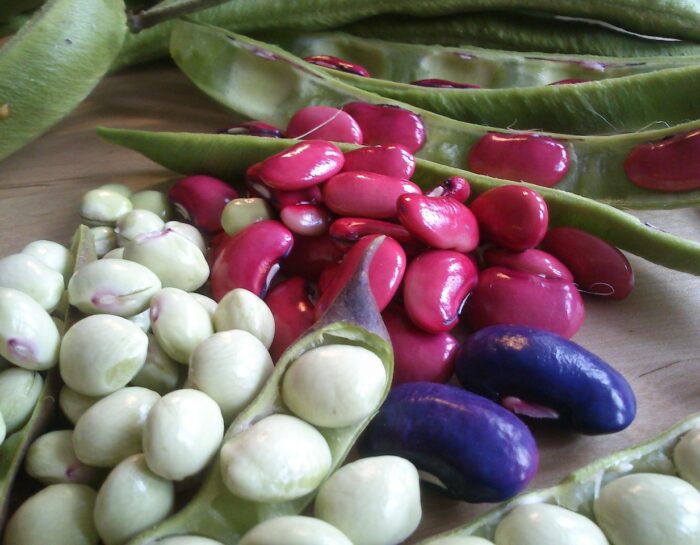by Chef Murph K.T.

In this article, you will; get information on Healthy Cooking ,Using Animal And Plant Based Proteins. Proteins are referred to as body building foods. Proteins are very important as they help in building and repair of muscles, replenishing lost blood, production of enzymes and other important body chemicals. A high intake of protein is recommended for quicker healing of wounds. Lack of protein can result in nails, skin and hair in poor condition; in addition lack of protein can lead to a poor immune system putting one at a higher risk of communicable diseases.
Protein is categorized into animal and plant based proteins. Animal Proteins include all fish, poultry, red meat and pork. Plant based proteins are non-meat products, such as, vegetables, grains, and beans, and are listed in detail below.
Why Include Protein In Each Meal
Weight Loss
Proteins give a fuller feeling, which, discourages overeating, which, is necessary in weight loss. Since proteins are digested steadily they provide continuous energy which gives the body more endurance when working out for a firm and fit body. It is recommended to include a lean protein for breakfast for more energy throughout the day.
Build Muscles
Proteins help in the building of strong muscles when working out. Strong cartilage that occurs from intake of proteins supports the muscles properly for a great physic. Protein is also necessary for the creation of gorgeous skin and strong bones. Remember to eat proteins in moderation as the excess is stored as fat.
Brain Function
The brain requires amino acids for its daily functions. It is necessary to eat a variety of proteins so that the brain can gain the most benefits.
Promotes Healthy Metabolism
Metabolism slows down as one ages resulting in unwanted weight gain. Including a small portion of lean protein in all your meals promotes healthy metabolism. The age and the gender of a person will determine how much protein should be consumed for better health.
Replenishment of Lost Blood
Women of child bearing age lose a small amount of blood every month through their menses. Someone involved in an accident may lose a large amount of blood. For that reason protein is required to replenish the lost blood. It also helps in boosting immune and nervous system for better quality of life.

Factors To Consider When Cooking Animal Based Protein
- Do Not Overcook or Undercook Animal Proteins
Overcooked animal proteins become tough and difficult to digest; furthermore exposing them to high temperatures for a long time may cause change in their character that may be toxic to the body.
Undercooked animal proteins may contain bacteria that may cause illness. Learn how to cook animal protein properly for maximum benefit.
- Trim Off Fat Before Cooking
Fat is usually stored under the skin of chicken and other animal proteins. As a result, it is necessary to cut it off before cooking to stay away from consuming unhealthy fat. The leaner the protein the better it is for your health.
- Divide Into Easy to Cook Portions
Most animal proteins need to be frozen before cooking so that they do not go bad. It is necessary to pack it into easy to cook portions to avoid defrosting the whole piece every time. Bacteria may develop on food when it is defrosted and putting them back in the freezer can cause food poisoning.
Plant Based Proteins
Vegetables
- 1 cup spinach has 5 grams protein
- 2 cups cooked kale has 5 grams protein
- 1 cup boiled peas has 9 grams protein
- 1 avocado offers 10 grams of protein
- 1 cup broccoli has 5 grams protein
- 1 cup cooked sweet potato has 5 grams protein
Nuts
- 2 ounces of walnuts offer 5 grams of protein
- 1 ounce of pistachios offers 5.8 grams of protein
- 2 tablespoons of almonds offers 4 grams of protein
- 1 ounce cashews offers 4.4 grams of protein
- 3 tablespoons of tahini offers 8 grams of protein
Grains
- 1 cup Quinoa – 9 grams protein
- Brown rice, oat bran and wheat germ
- 1 cup oatmeal – 6 grams protein
- Sprouted grain breads – 7-10 grams protein
Lentils and Beans
- 1 cup of lentils has 18 grams protein
- 1 cup garbanzo beans/hummus have 14.5 grams protein
- 1 cup of black beans, pinto or white kidney beans have 13-15 grams protein
- 1 cup of soybeans has 28 grams protein
- 1 cup of tempeh has 30 grams protein
Non Dairy Milk
- 1 cup of soy milk offers a whopping 11 grams of protein
Plant based proteins are good for you because
- They are low in fat that may clog your arteries.
- They are high in fiber which is necessary for a healthy digestive system.
- Plant based proteins are cheaper and are easily available.
A balanced diet is necessary to ensure your body gets all the nutrients it requires. Therefore make sure to include your healthy carbohydrates with lots of fruits and vegetables served together with the recommended amount of lean protein.
Enjoy
Chef Murph KT


